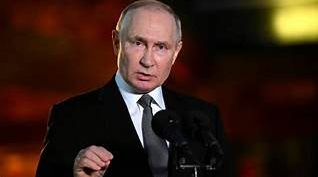Relations between London and Moscow are at a nadir – Russia’s move doesn’t change much.
Britain has lost another six of its diplomats in Russia – their accreditation revoked for “conducting intelligence and subversive work.” On the surface, this accusation of spying appears to be a direct retaliation. Britain has been actively lobbying its allies to allow Ukraine to use long-range missiles to strike inside Russian territory, further heightening tensions between the two countries.
UK-Russian relations are possibly at their lowest since the end of the Cold War. For the Kremlin, Britain stands as Europe’s leading Russophobe, with both the Conservative and Labour parties aligning on a robust stance against Russia since the invasion of Ukraine. This unified front has continued under Keir Starmer’s leadership in Downing Street, particularly with policies aimed at supporting Ukraine, including the approval of long-range missile use.
While the expulsion of British diplomats is another escalation, it does not fundamentally alter the already strained relationship between the two nations. Russia’s move, likely in response to Britain’s increasing military support for Ukraine, fits into a pattern of reciprocal diplomatic expulsions that have been ongoing since the war in Ukraine began. These tit-for-tat actions reflect the deepening mistrust and hostility between the two powers, but they do little to change the strategic landscape.
Russia’s accusation of espionage seems designed to further antagonize the UK while underscoring Moscow’s view of Britain as a key antagonist in the West’s support of Ukraine. However, the broader implications for British foreign policy remain limited. London is unlikely to back down from its support of Ukraine, and the diplomatic fallout from these expulsions is unlikely to shift the trajectory of the conflict.
In essence, while the expulsion of diplomats may be a provocative step by Russia, it is unlikely to have a lasting effect on Britain’s stance or its role in the ongoing conflict in Ukraine. The West remains largely united in its efforts to counter Russia’s aggression, and the diplomatic row is another chapter in a long-standing and deepening rift between the two nations.
At this point, both Britain and Russia seem locked in a cycle of actions and reactions that serve to reinforce their positions but do little to change the fundamental dynamics of the war or their respective international relationships. The diplomatic crisis, while significant, does not alter the larger trajectory of UK-Russia relations.

